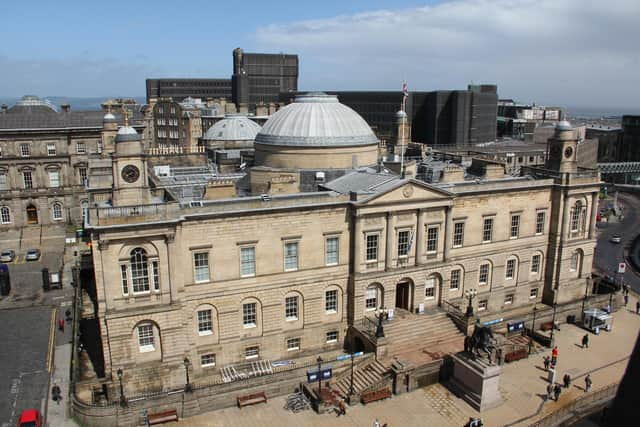Historians claim National Records of Scotland 'failing in duty' as archive access restricted
More than 90 professionals and PhD students have signed a letter to Paul Lowe, registrar general and Keeper of the Records of Scotland, to complain about access to the Historical Search Room and the Scotland’s People Centre at General Register House in Edinburgh.
The letter claims the “tradition of historian storytellers is in danger of being suffocated” given restrictions have not fully lifted following the Covid pandemic, with livelihoods impacted in some cases given deadlines are going unmet and offers of new work are being turned down given issues at National Records of Scotland (NRS).
Advertisement
Hide AdAdvertisement
Hide AdSignatories include Highland historian Professor James Hunter; Professor David Worthington, head of history at the University of Highlands and Islands, and Professor Julian Goodare of Edinburgh University, who co-wrote the Survey of Scottish Witchcraft.
The letter said: “The NRS is restricting access to Scotland’s national archive with significant negative impacts on Scottish culture, education, economy and tourism.
"While we understood the need for access restrictions during the height of the pandemic, our research endeavours and our small businesses continue to be negatively impacted by NRS restrictions.


“The historical records of Scotland are internationally renowned. They are part of our national heritage and tell a story which resonates with countless people within Scotland and beyond. It is a fundamental duty of the NRS, as the custodian of our heritage, to make those records available to all of us. At present, it is singularly failing in that duty.”
NRS said ventilation requirements still in place due to the pandemic had affected visitor capacity at General Register House.
Fergus Smith, a genealogical researcher, author and signatory to the letter, said he attended General Register House at least once a week pre-pandemic, when visitors were able to to turn up, order papers and have them delivered to their desk, with documents held onsite usually made available within 20 minutes.
Mr Smith said he had been able to access records only five times this year, with visits now booked weeks in advance. Gaps between slots are now between five and eight weeks and inquiry emails are going unanswered for long periods of time.
Mr Smith said he was now in a position where “hundreds of people” had asked him to do work, but he was unable to take on new jobs given the issues.
Advertisement
Hide AdAdvertisement
Hide AdThe letter also highlights disparities across the UK, with The National Archives in London and the Public Record Office of Northern Ireland operating normally.
A spokesman for NRS said its search rooms opened in April 2021 in compliance with government Covid-19 guidance, which include safe levels of ventilation.
A statement said: “Our services are delivered from historic listed buildings with particular challenges in terms of ventilation and building layout and so, in common with many organisations, this has meant changes to how services are delivered and safe occupancy levels.
“Since last year, we have progressively increased capacity and the range of services available using a booking system to ensure fairness."
Opening hours have increased in recent weeks with appointments now available on a Friday, the statement added.
Comments
Want to join the conversation? Please or to comment on this article.
